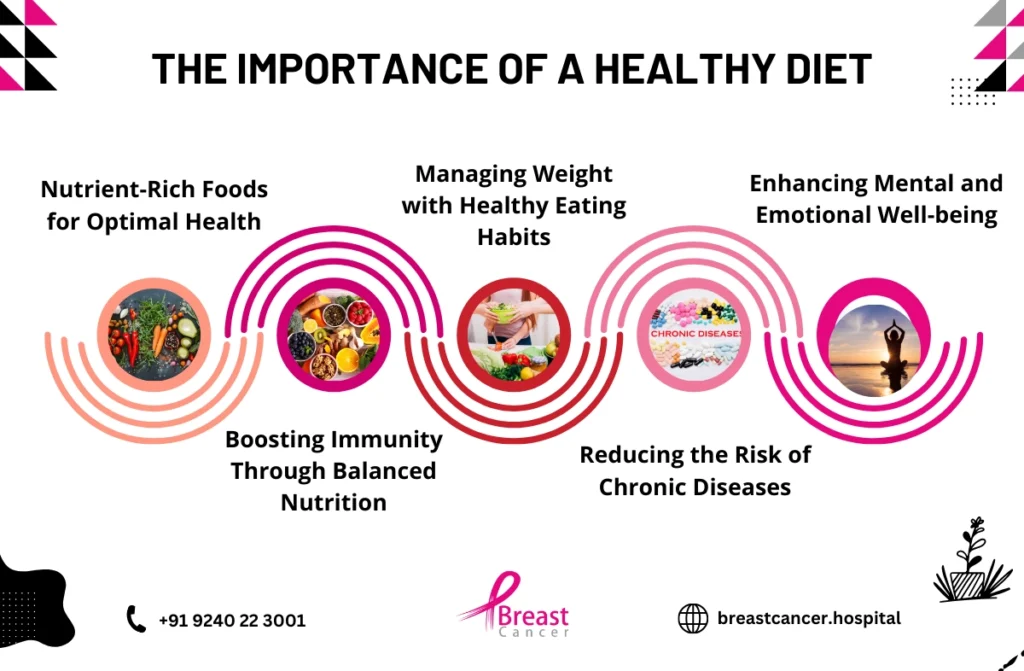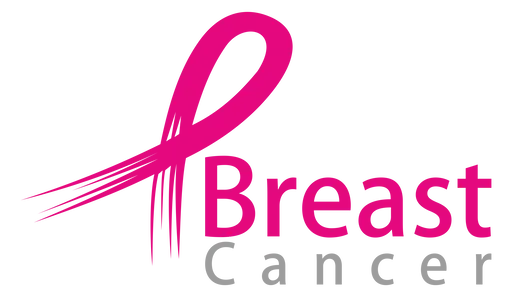When it comes to managing breast cancer, diet can play a significant role in improving overall health and potentially influencing treatment outcomes. Breast cancer food to avoid is a topic that can help guide individuals toward better dietary choices to support their journey. This blog will outline some key foods to avoid for breast cancer patients, along with recommendations on healthy alternatives, meal planning, and lifestyle tips to promote well-being.

Breast Cancer Food to Avoid
When recovering from breast cancer, certain foods can hinder the healing process or increase the risk of cancer recurrence. Below are the key foods to avoid:
- Processed Meats: These include bacon, sausages, and deli meats. They are high in sodium and preservatives, and studies suggest a link between processed meats and certain types of cancer.
- Sugary Snacks: Excess sugar can lead to weight gain, increased insulin levels, and inflammation—all of which can negatively impact breast cancer recovery.
- Alcohol: Alcohol consumption has been linked to an increased risk of breast cancer, particularly in hormone-receptor-positive cancers. It’s best to limit or avoid alcohol entirely during recovery.
- Refined Grains: White bread, pasta, and other refined grains can lead to spikes in blood sugar and insulin levels, potentially encouraging cancer cell growth. Opt for whole grains instead.
- Certain Dairy Products: Some studies suggest that high-fat dairy products, particularly those rich in saturated fats, may contribute to inflammation in the body. It’s best to consume dairy in moderation or choose plant-based alternatives.
The Role of Diet and Exercise in Cancer Recovery
Maintaining a balanced diet and staying physically active during cancer treatment and recovery is essential. A healthy diet can provide the nutrients needed for energy, healing, and immune function, while regular exercise can help reduce fatigue, improve mood, and strengthen the body’s defenses.
- Diet: Focus on nutrient-dense foods such as fruits, vegetables, whole grains, lean proteins, and healthy fats. These foods can support healing, reduce inflammation, and strengthen the immune system.
- Exercise: Regular exercise, even light walking or yoga, can help improve circulation, reduce anxiety, and boost overall well-being. Aim for at least 30 minutes of moderate exercise most days of the week, as approved by your healthcare provider.
Best Fruits for Breast Cancer Patients
Certain fruits are particularly beneficial for breast cancer patients due to their high antioxidant content, which can help reduce inflammation and protect cells from damage. Here are some of the best fruits to include in your diet:
- Berries: Blueberries, strawberries, and raspberries are rich in antioxidants, such as vitamin C and flavonoids, which can help fight free radicals in the body and support immune function.
- Citrus Fruits: Oranges, lemons, and grapefruits are excellent sources of vitamin C, an essential nutrient that helps strengthen the immune system and may reduce the risk of cancer recurrence.
- Apples: High in fiber and antioxidants, apples are a great addition to your diet for promoting digestion and overall health.
- Pomegranates: Known for their anti-inflammatory properties, pomegranates contain compounds that may help slow the growth of cancer cells and protect healthy cells from damage.
7-Day Meal Plan for Breast Cancer Patients
This 7-day meal plan provides balanced, nutrient-dense meals to support breast cancer recovery. Each day includes a variety of cancer-fighting foods to nourish your body and promote healing.
Day 1:
- Breakfast: Oatmeal with chia seeds, almond milk, and fresh blueberries
- Lunch: Quinoa salad with mixed greens, tomatoes, chickpeas, and olive oil dressing
- Dinner: Grilled salmon with roasted sweet potatoes and steamed broccoli
- Snack: Apple slices with almond butter
Day 2:
- Breakfast: Green smoothie with spinach, banana, flaxseed, and almond milk
- Lunch: Turkey and avocado wrap in a whole grain tortilla
- Dinner: Baked chicken breast with quinoa and sautéed kale
- Snack: Pomegranate seeds with a handful of walnuts
Day 3:
- Breakfast: Scrambled eggs with spinach, mushrooms, and whole-grain toast
- Lunch: Lentil soup with carrots, celery, and a side of mixed greens
- Dinner: Grilled tilapia with roasted Brussels sprouts and quinoa
- Snack: Orange slices with a handful of pumpkin seeds
Day 4:
- Breakfast: Greek yogurt with chia seeds, raspberries, and a drizzle of honey
- Lunch: Hummus and veggie wrap with cucumbers, carrots, and spinach in a whole-grain tortilla
- Dinner: Baked tofu stir-fry with broccoli, bell peppers, and brown rice
- Snack: Apple slices with sunflower seeds
Day 5:
- Breakfast: Smoothie bowl with almond milk, strawberries, chia seeds, and a sprinkle of granola
- Lunch: Grilled chicken with a side of mixed greens and olive oil dressing
- Dinner: Roasted salmon with quinoa and sautéed spinach
- Snack: A handful of mixed nuts and dried cranberries
Day 6:
- Breakfast: Chia pudding made with almond milk, topped with blueberries
- Lunch: Brown rice bowl with black beans, corn, avocado, and cilantro
- Dinner: Grilled shrimp with quinoa and a side of roasted zucchini
- Snack: Carrot sticks with hummus
Day 7:
- Breakfast: Whole-grain toast with avocado and a poached egg
- Lunch: Turkey and spinach salad with balsamic vinaigrette
- Dinner: Stir-fried tofu with broccoli, mushrooms, and brown rice
- Snack: A handful of almonds and a few slices of apple
Why Is Your Diet Important During Cancer Treatment?
Diet plays a vital role in managing breast cancer. The right foods can enhance energy levels, support immune function, and minimize treatment side effects. Avoiding harmful foods is as critical as consuming beneficial ones.
- Avoid Processed and Red Meats: Studies suggest these can promote inflammation and cancer progression.
- Say No to Trans Fats: Found in fried foods and baked goods, these fats contribute to weight gain and inflammation.
- Reduce Sugar Intake: High sugar levels can lead to obesity, a known risk factor for breast cancer.
- Avoid High-Sodium Foods: Excess salt can cause water retention and hypertension, increasing strain on the body.
- Limit Dairy Intake: Some studies indicate that high dairy consumption may influence hormone levels, impacting cancer progression.
A structured 7-day meal plan for breast cancer patients ensures optimal nutrient intake while avoiding harmful foods.
How Does Cancer Treatment Affect Your Diet?
Cancer treatments such as chemotherapy, radiation, and surgery can profoundly impact your diet. Here’s how:
- Appetite Loss: Many treatments reduce appetite. Focus on nutrient-dense, easy-to-eat foods.
- Taste Alterations: Foods may taste metallic or bland. Experiment with herbs and spices to enhance flavors.
- Digestive Issues: Constipation, diarrhea, or nausea are common. Avoid spicy and fatty foods, which can worsen these symptoms.
- Immune System Sensitivity: Stick to well-cooked foods and avoid raw items like sushi to minimize infection risks.
These effects make it essential to craft a thoughtful diet plan. A 7 day meal plan for breast cancer patients can be a great way to ensure you’re getting the nutrients you need while managing side effects.
Other Lifestyle Considerations
When managing breast cancer, diet is just one factor that plays a crucial role. Other lifestyle choices, including exercise, stress management, and sleep quality, are equally important. Incorporating a 7-day meal plan for breast cancer patients can support overall health, but avoiding certain foods is just as crucial.
- Regular Physical Activity: Exercise helps manage weight, reduce fatigue, and improve mood. A balanced breast cancer diet and exercise routine can strengthen the immune system.
- Minimizing Processed Foods: Processed meats and sugary snacks should be avoided as they increase inflammation and may contribute to tumor growth.
- Limiting Alcohol Consumption: Excessive alcohol intake is linked to an increased risk of breast cancer recurrence.
- Adequate Hydration: Staying hydrated helps flush toxins from the body and supports digestive health.
- Stress Management: Yoga, meditation, and deep-breathing exercises can help reduce stress levels.
By following a holistic approach, including the right diet, lifestyle modifications, and breast cancer diet and exercise, patients can improve their quality of life.
How Diet Affects Breast Cancer food to avoid Outcomes
Scientific research underscores the significance of diet in breast cancer outcomes. A well-balanced diet can:
- Support immune function.
- Reduce inflammation.
- Enhance the efficacy of treatments.
However, certain foods may exacerbate the condition or counteract the benefits of treatment. Understanding the connection between nutrition and breast cancer food to avoid is vital for patients seeking optimal care.
Tips for Eating Healthy
Healthy eating is a cornerstone of managing breast cancer. It helps maintain strength, supports recovery, and improves overall well-being. Here are some essential tips:
- Focus on Whole Foods: Incorporate fresh fruits, vegetables, whole grains, and lean proteins into your meals.
- Limit Processed Foods: Processed foods are a significant part of the “breast cancer food to avoid” list. They are often high in sugar, unhealthy fats, and preservatives.
- Stay Hydrated: Drink plenty of water to help your body process treatments effectively.
- Control Portion Sizes: Avoid overeating by eating smaller, more frequent meals.
- Limit Alcohol: Alcohol consumption can increase estrogen levels, which may influence breast cancer risk and progression.
Conclusion
In summary, understanding breast cancer food to avoid can be a valuable part of a supportive diet and lifestyle plan. By minimizing processed foods, saturated fats, alcohol, and refined carbohydrates, individuals can reduce inflammation, promote hormone balance, and support their body’s natural healing processes. Incorporating nutrient-dense foods, such as lean proteins, whole grains, and antioxidant-rich fruits, into a 7-day meal plan for breast cancer patients further enhances this approach.
Taking proactive steps with breast cancer diet and exercise and focusing on the breast cancer can improve overall well-being, helping individuals feel more empowered and in control of their health journey. Small changes to food and lifestyle choices can make a meaningful difference in recovery and quality of life.




